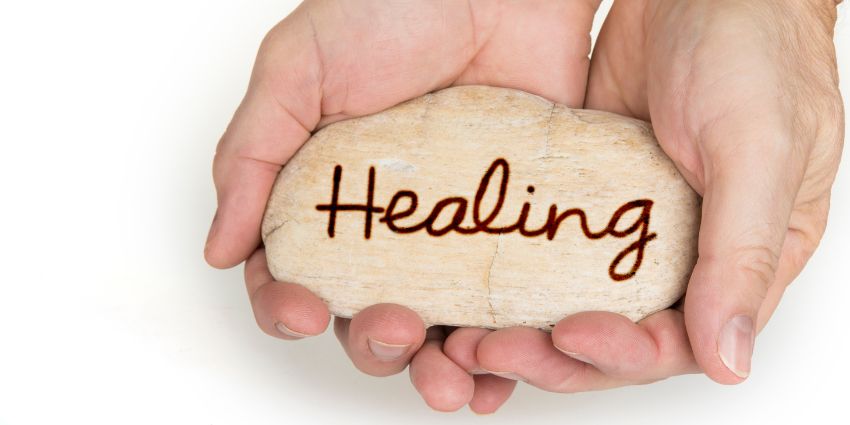How long does it take to heal via drug-free methods?
How many times have you heard that alternative healing methods either work too slow or are ineffective? Even in the current cyber age of information misconceptions still abound regarding the nature of non-pharmaceutical modalities. And maybe some of us have also forgotten why sick people who approach healthcare professionals are called ‘patients.’
It’s because people seeking treatment are supposed to practice a modicum of patience—by virtue that it often takes time to heal. The path to true healing does necessitate some waiting, and how long the wait would be will depend on the nature of the condition, the combination of interventions utilised to treat the health complaint, and as the patient’s degree of adherence to his attending physician’s recommendations.
The rationale behind natural healing methods is different from that of western medicine. The first thing that people have to understand is that holistic healing targets the root causes of disease for deep and lasting healing. This is why alternative medicine might appear as either ineffective or painfully slow in treating conditions. Allopathic medicine on the other hand is focused on symptomatologies. Pharmaceutical drugs are formulated to treat symptoms, which is why they usually work faster than herbal and nutritional remedies that target the underlying causes of disease.
The objective of holistic healing is to maximise benefits while minimising or eradicating side effects of treatments. Artificial chemicals present in drugs burden the liver. Some prescription meds have also been documented to cause severe side effects such as death and target organ damage.
Acute conditions such as coughs, colds, infections, physical injury/trauma, aches and pains, seasonal allergies, and asthma attacks normally take a shorter time to treat due to their sudden onset. Note that acute conditions can be symptoms of chronic conditions. A heart attack (which is an acute condition) occurs as a symptom of atherosclerosis, a type of cardiovascular disease classified as a chronic degenerative disease.
Chronic conditions take several months to years to develop and worsen, and therefore require several treatments to eliminate underlying causes. Healing rates of chronic conditions depend on the following factors:
Degree of cellular/organ toxicity. Toxins are everywhere: in food (pesticides, hormones, antibiotics, radioactive isotopes, cooked food toxins, heavy metals, and chemical additives such as preservatives, food dyes, conditioners, antioxidants, bleach, MSG), pharmaceutical drugs, and environment (air pollution, water pollution, toxic personal care and household products). The longer and more frequent the exposure is to toxins, the longer the detoxification period will be.
Presence of long-term and chronic low-grade inflammation. This is often a result of a cluster of causes, such as oxidative stress, food intolerance/allergies/sensitivities, systemic toxicity, moderate to severe malnutrition, and hormonal imbalance.
Severity of energetic and electrical disruptions. These are caused by a sedentary lifestyle, physical and emotional stress, nutritional deficiencies, toxicity, and lack of sleep.
A multi-pronged approach is mandatory for deeper healing, which can involve stress management, dietary modification (acquisition of clean eating habits focusing on whole foods nutrition, and avoidance of aggravating foods), supplementation (to correct nutritional deficiencies and to enhance detoxification), and incorporation of energy healing modalities such as acupuncture.
Traditional Chinese medicine (TCM) makes use of ancient herbs that deliver intended pharmacological affects to treat organ insufficiency, including a method that involves puncturing particular areas in the body to trigger specific healing responses. This ancient healing technique is called acupuncture, where sterilised needles are used to prick specific meridian points that would stimulate particular organs and organ systems.
Acupuncture has a long track record for safety and efficacy. Even modern imaging technology validates the efficacy of this ancient healing technique. Acupuncture helps restore optimal cellular and organ function. It also removes energy blockages caused by physical stress, negative thoughts and emotions, sleep deprivation, and chemical sensitivities/toxicity. Acupuncture’s benefits are immediate, progressive, and incremental. The frequency and duration of sessions would depend on the condition(s) that require treatment.
The other component of TCM is Chinese herbal medicine, which makes use of traditional healing herbs that help nourish, tone, detoxify, and rebuild cells, blood, and organs. Chronic conditions often benefit from the synergy of acupuncture and Chinese herbalism. Healing timeframes would depend on the severity of conditions being treated, as well as patient compliance to the prescribed programme.
At ZenHealth we do our best to thoroughly assess our clients to properly treat their conditions. Our competent and friendly medical staff provides the necessary education and individualised guidance to support clients in their healing journey. We also inform our clients what realistic expectations can be made when they avail of our services. If you are interested in a consultation, please visit: https://zenhealth-olinda.com.au/contact-us

